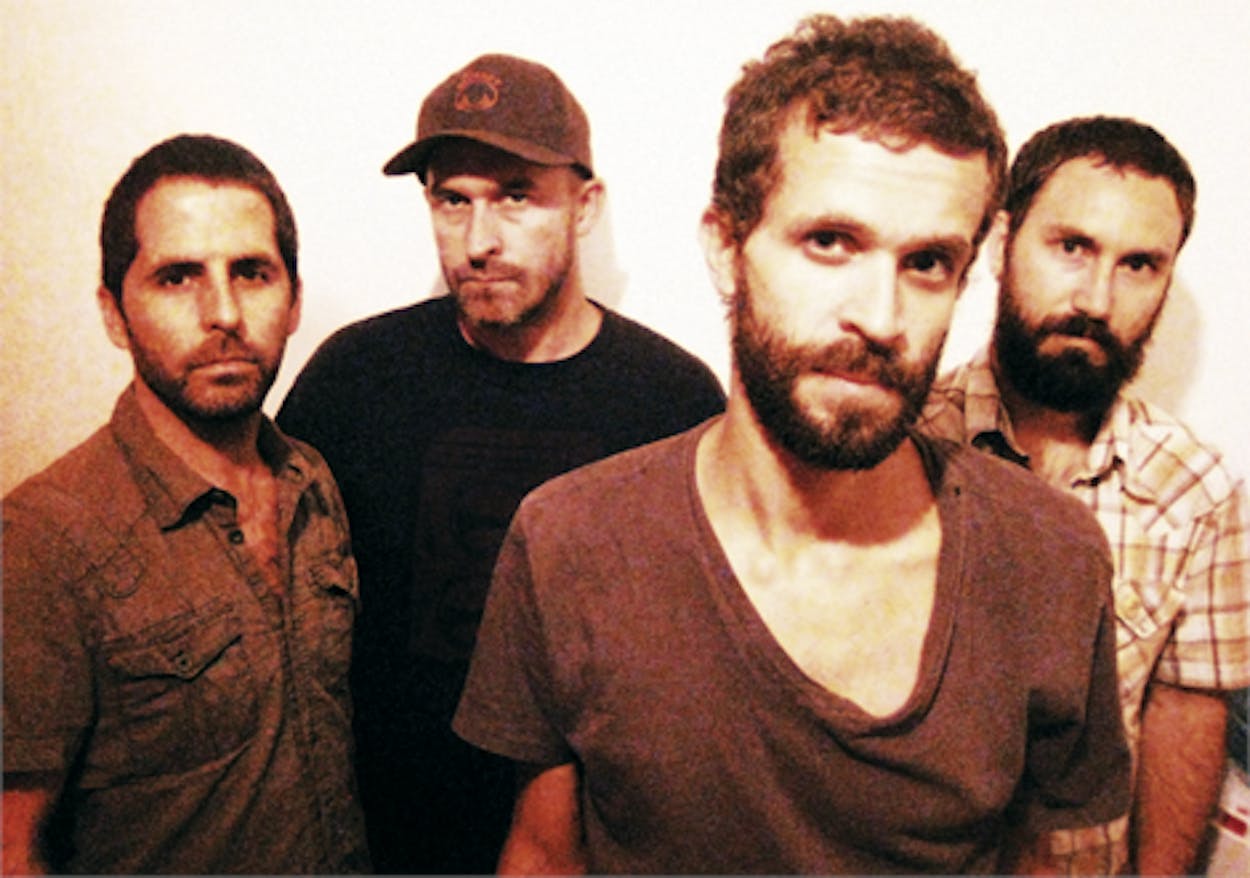Five years ago, singer Greg Vanderpool (second from left, below) and guitarist Roberto Sanchez morphed their Austin band Milton Mapes into Monahans, named after the West Texas desert oasis. In March 2010 the quartet—fronted by the 38-year-old Vanderpool and rounded out by Mapes veteran Britton Beisenherz on various instruments and former Spoon bassist Joshua Zarbo—began releasing a new song per month online, a handful of which are still available for free download at monahans.net. The final song in the series, “Seabirds,” features vocals by Sinead O’Connor.
Both you and Roberto came out of Dallas’s Deep Ellum scene.
Roberto and I were next-door neighbors. We played around Deep Ellum starting from the time I was in high school. We moved from Dallas to Nashville in 1999 to start Milton Mapes. Then we decided to reconvene in Austin.
What prompted the name change to Monahans?
We felt Milton Mapes was played out. We had gone through a lot of players and had been categorized in that alt-country realm, but it wasn’t something that we were really into. I never thought that the goal was to ride that sort of wave of music. So we took a break and wiped the slate clean just to see what would happen. We decided to change the name so there wouldn’t be any preconceived notions.
For much of the past year you’ve been recording and releasing a song a month online for free. Why?
Two of us were expecting children, and we weren’t sure what we would realistically be able to do in 2010. When you’re touring on the level that we’ve been, you’re lucky if you break even, so we didn’t figure we had anything to lose. We wanted to get our music out there and stay productive. Doing it this way also let people into the creative process without it turning into some kind of reality circus.
It might be hard for some fans to understand why your best option is to give your music away.
The options just aren’t there. We’ve been lucky enough to have other people put out our music and promote it for us, but times are changing. Now you put the music out there, and if there’s an audience for it, you find a way to make a living off that.
So how did it work? Did you actually write and record a song a month?
We went to a friend’s ranch in Van Horn and recorded some things, and those became the nucleus around which we wrote other songs. We had to figure it out on a month-by-month basis, and just when we thought we didn’t have anything to show for it, a song would emerge. There was a certain amount of pressure that forced songs out of us that otherwise wouldn’t have happened.
Does it feel like an album to you?
Yeah, it does, though I don’t know what sequence they will be in or what songs will make it onto our next record.
“Seabirds” has a surprise guest. How did you meet up with Sinead O’Connor?
It was a pie-in-the-sky idea. We sent her manager the tracks, and she loved it and agreed to do it. It turned out she’d been recording her new album in Dublin, so she was already in the studio; the timing worked out great for her.
Another big surprise must have been the Milton Mapes song “The Only Sound That Matters” turning up on Robert Plant’s latest album.
An absolute shock to me. I once met Robert Plant at the Nashville airport and came back to Austin telling everyone, but I never told Plant my name or that I played music. Two years later I get a call out of the blue from some publisher telling me that my song is going to be on his new record. Actually sometime after that we heard back from Sinead O’Connor, and a week later Plant was playing at Stubb’s. We got to meet him and I asked him how he heard the song, and he said it was through a friend of his who used to be the head of [the famous British label] Ensign Records, and his friend had also discovered and signed Sinead O’Connor years ago. Weird.







